Quadriceps muscle stretching exercise
Table of Contents
What is a Quadriceps Stretching?
- Quadriceps stretching is a great exercise to improve the flexibility of the thigh muscles, these exercises are easy to perform at home exercise & also have many health benefits.
- The quad stretch is a lower body movement that contracts as well as expands the muscles at the front of the thigh, together called the “quadriceps femoris” muscle. The quadriceps muscle involves four parts-vastus medialis, vastus lateralis, vastus intermedius & the rectus femoris as well as is one of the strongest & largest muscles in the body.
- They are holding the weight when the patient is upright & supporting the flexion of the kneecap. Tight quads may cause leg pain, lower back pain as well as difficulty walking or even standing.
- Some individuals perform quad stretches as a warm-up before & after the lower-body workout routine, cardio session, yoga practice, or other wellness activity.
What are the benefits of stretching the Quadriceps muscle?
- If a patient stretch properly they may gain these many benefits are:
- Good quad stretches stimulate the muscles & increase blood flow to the area.
- This also decreases quadriceps muscle tightness and pain.
- A good stretch will make the muscle used for many physical activities namely the run, brisk walking, squats, yoga, or other sports activities.
- Quad stretching exercises increase short-term range of motion, like hip flexion as well as knee extension.
- This stretch helps you to prevent injuries while doing leg workouts.
- This increases long-term flexibility as well as mobility.
- This relieves muscle soreness.
What are the types of quadriceps stretching?
There is a certain technique the patient can use for stretching:
- Lying Side Quad Stretch
- Standing Quad Stretch
- Kneeling Quad Stretch
- Pigeon Twist
- Frog Pose
- Straight Leg Raises
- Hamstring Curls
- Prone Straight Leg Raises
- Wall Squats
- Rear-Foot Elevated Quad Stretch
- Prone Quad Stretch
- Standing reach–up hip flexor stretch
- Single lean-back quad stretch
- Rotating stomach and hip flexor stretch.
Lying Side Quad Stretch
- How to do stretching: Take a side-lying position on the ground.
- Put one hand under the head for support.
- Now use the outer hand to bend the upper knee.
- After that, pull that bent knee towards the head until you feel stretched.
- Hold there for 30 seconds & repeat on another side.
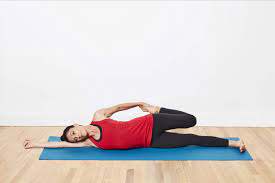
Standing Quadriceps Stretching exercise
- How to do stretching: Take a standing position on one leg. If the patient cannot balance on one leg, use the wall or any static object.
- Now hold the bent leg with the corresponding hand & pull upward towards the torso.
- Keep the chest straight, do not move while you stretch.
- Hold for 20-30 seconds. Repeat on the other side & do it on each side 3 times.

Kneeling Quad Stretch
- How to stretch: The patient can use the soft pillow under the knee if he finds the ground uncomfortable.
- Start in the high lunge position, stepping the left foot forward.
- Drop the right knee slowly to the ground.
- Adjust the balance. Reach back for the right foot & grab the toes with the right arm, once the patient is stabilized.
- Hold the quad stretch for around 30 seconds.
- Once time is up, slowly release the hold on the right foot, then come back to the high lunge position.
- Switch sides & do the same steps for the other knee.

Pigeon Twist
- How to perform stretch: Embark in the downward-facing dog position.
Bring forward the left knee between the hands forming the pigeon pose. - Rest the left hand next to the left chin, then bend the right knee.
Using the right hand, reach for the right foot & gently press the right foot’s sole in the direction of the right hip. - Put the left on top of the right foot & slightly twist to the right side. Wrapping the right hand around the back. If possible, grab onto the upper left thigh located in front of the hip.
- Using the hands, press into the body, getting deeper into the twist. Hold on here for around 5-10 seconds before releasing the hands & straightening out the right leg.
- Twist the body back towards the left & put the palms on either side of the left knee.
- Stepping the left leg back, come back into the downward-facing dog position for one complete breath.
- Now bring forward the right knee in between the hands. Repeat for the other side.

Frog Pose
- How to perform stretch: Take the prone position on the ground & brace the chest up with the elbows, then bend the knees
- Reaching the hands outback in order to hold on to the feet.
- After that, turn the fingers assuring that they point in the same direction as the toes.
- Raise the elbows up, assuring that they point toward the roof.
- The patient can then raise the upper body as high as possible to feel the muscles activate.
- Alternatively, he can do one side at a time if he finds this stretch too challenging.
- Hold on here for approximately 5-10 seconds and release.

Hamstring Curls
- How to stretch: Take the prone lying position on the ground.
- Now bend one knee & raise the foot towards the hip.
- After that, hold that pose for 5-10 seconds.
- While this stretch, keep the body straight, do not move.
- Do 3 sets of 15 repetitions.
- The patient can perform bilaterally at once.
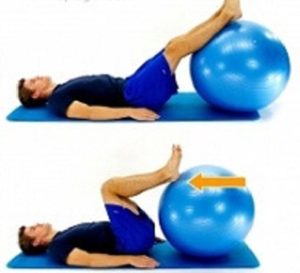
Prone Straight Leg Raises
- How to do stretch: Take the prone lying position on the ground and your legs are stretched out.
- Tight your both hamstrings and raise one leg towards the ceiling.
- Hold that position for 5-10 seconds and lower your leg & repeat.
- Do 10-15 lifts, then switch to the other leg.

Wall Squats
- How to do stretch: Stand with the back facing towards a wall.
- The feet should be shoulder-width apart on the ground.
- Slowly start bending the knees, maintain the pelvis as well as back against the wall.
- Hold a position for about 10 seconds.
- Do not bend too much to avoid discomfort.
- Repeat 3-5 times.
- In progression, the patient can increase the holding time.
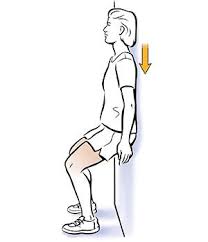
Rear-Foot Elevated Quad Stretch
- How to stretch: Take the lunge position in front of the wall or any sturdy object with the knees bent about 90
- degrees.
- Scoot back towards the object. If the patient is doing the stretch against the wall, put the knee as well as shin upright against the
- wall. If the patient is using a chair, put the top of the foot on the seat of the chair.
- Work the upper body up to the front leg until the arms are on the upper of the thigh, trying to make the upper body upright.
- Feel a stretch in the muscle of the planted leg.
- To deepen the stretch, draw the butt back toward the wall or even the chair.
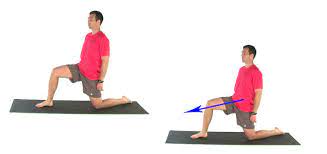
Prone Quad Stretch
- How to stretch: Take the prone position on the mat.
- Now bend the knee as much as you can, bringing the heel towards the hip.
- When the patient does, grasp the ankle as well as start to pull the heel towards the hip.
- If you cannot hold the ankle, then you can use a resistance band to perform the stretch.
- Come back to the starting position, & repeat on the other legs.
- Hold the stretch for 30 seconds.
- Perform 3-4 rounds.

Standing Reach-up Hip Flexor Stretch
- How to do stretch: Take the standing position, but one step forward.
- Reach up with both hands, and draw the hips forward.
- After that, lean back & then lean away from the back leg.
- Hold this position for around 20-30 seconds.
- Repeat 2-3 times on both sides.

Single Lean-back Quad Stretch
- How to stretch: Sit on the ground.
- Bend one knee & put the foot next to the buttocks.
- After that, slowly lean backward.
- Hold this stretch for around 20-30 seconds & do it 2-3 times.
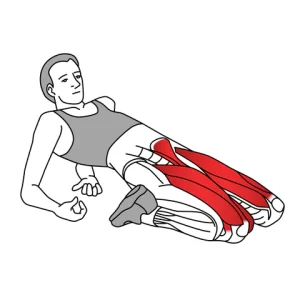
Rotating Stomach and Hip Flexor Stretch
- How to stretch: Take the prone position on a mat.
- Bring the hands near the shoulders.
- Maintain the hips on the ground.
- Now look forward as well as raise by straightening the arms.
- After that, slowly bend one arm & rotate that side of the shoulder towards the ground.
- Hold this stretching position for around 15-20 seconds.
- Repeat the same procedure on another side.

There are some yoga poses that give you quadriceps stretch:
- Crescent Lunge
- Sugarcane Pose
- Dancer’s Pose
- Camel Pose
- Bow Pose
- Little Thunderbolt Pose.
Crescent pose
- How to stretch: Take the lunge position on the ground.
- Put one knee forward around 90 degrees bend, one leg behind straight.
- After that, raise both hands overhead & clasp them together.
- Now push the hip forward & downward, and keep the back straight.
- Now slowly lean back to feel the stretch into the quads.
- The patient can feel the stretch on the backward leg.
- Holding time is around 20 – 30 seconds & repeat 2-3 times on both sides.

Sugarcane Pose
- How to stretch: Stand tall with the feet wide apart.
- Now raise both hands on the sides at shoulder level.
- After that, lift one leg, bend at the knee & hold that ankle with the corresponding hand.
- Now bend at the waist & put the other hand on the floor, at the side, or in front of you.
- If the patient feels stretched, then hold for 20-30 seconds.
- Repeat 2-3 times.
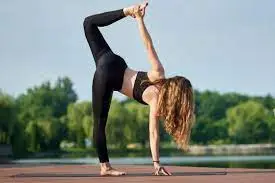
Dancer’s pose
- How to stretch: Stand tall as well as feet wide apart.
- Now raise both hands forward at shoulder level.
- Raise one leg behind you & grasp that ankle with the corresponding hand.
- Now lift that leg upward behind you.
- Hold this stretching pose for at least 10-15 seconds.
- Perform 2 – 3 times.
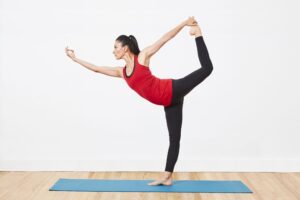
Camel pose
- How to stretch: Take the kneeling position on the mat.
- Now lift both hands forward & bend the waist backward.
- Then, try to grasp the ankle behind you by making an arch on the back.
- Hold that pose for around 20 – 30 seconds.
- Repeat 2-3 times.

Bow pose
- How to stretch: Lie on a stomach with the legs straight out.
- Slowly bend both knees & raise both hands upwards.
- Now, take the hands back, and try to hold the ankle of both legs.
- Now, using both hands pull the ankles towards the hips.
- The patient feels stretched on both quads, hold it for 5-10 seconds.
- Slowly release the pose & repeat.

Little thunderbolt pose
- How to stretch: Take the kneeling position on the mat.
- Now raise both hands upwards & hold the ankle.
- Slowly backward bend at the waist & try to put the head between both heels.
- Maintain the pose for 10-15 seconds to feel stretched on both quads.
- Gently release & do it 3-4 times.
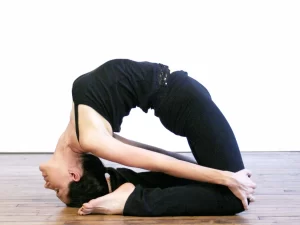
What are the common mistakes the patient can avoid while a Quadriceps stretching?
There are certain mistakes that the patient cannot make during stretching:
- Bouncing: Do not bounce while doing the stretch. If the patient finds himself performing so, you need to stabilize yourself by holding onto sturdy objects.
- Locking the Knee: Never lock the standing knee while the stretch. maintain it soft.
- Knee moving Outward: Do not allow the bent knee to drift outward. Maintain the knees next to each other.
- Stretching prior to Warm-up: To avoid muscle strain, the patient can stretch only after you are done with the warm-up.
- Stretching to Pain: Stretch until you feel mild discomfort, do not stretch to the point of pain. Take safety not to strain the knee. The aim is not to touch the heel to the buttock, but rather to feel the gradual stretch in the thigh.
- Arching the Back: Do not arch the low back as you bend the knee, maintain the abdominals engaged to keep the back neutral as you drag into this stretch.
Quadriceps Stretching Safety Guidelines
There are certain guidelines the patient needs to follow while stretching:
- Stretching is no exception: Stretching may be dangerous & cause injury if you do it wrongly.
- Breathe: Never hold the breathing. Holding the breathing causes tension as well as stress in the muscle, & may increase blood pressure. The deeper you breathe, the more relaxed the muscles will be, and the deeper and longer you can stretch.
- Stretching tight muscles are uncomfortable for you, but the patient should never feel any stabbing or even sharp pain.
- Be consistent: Do stretching daily for a few minutes or seconds a couple of times a day that gradually builds flexibility & increases range of motion over the long term. It is a good way to stretch, rather than doing it longer times only once a week.
- Wear loose comfortable clothing, as it is tough to stretch if the clothes are tight and restrict movement.
FAQ
Why is quadriceps stretch important?
Stretching the quads activates the muscles, stimulates blood flow, & can increase the short-term range of motion as well as flexibility. Some individuals perform quad stretches as a warm-up before or cool down after a lower-body workout routine, yoga practice, cardio session, or other wellness activity.
What causes tight quadriceps?
Tight quadriceps (quad) muscles are very common since they can be caused by overuse (for example, focused weight lifting or even repetitive motions like cycling) or underuse (for example, lots of sitting).
What muscles do quadriceps stretch work?
Not surprisingly, quadriceps stretches target the quads, a four-muscle group at the front of each thigh that includes a rectus femoris, vastus lateralis, vastus intermedius as well as vastus medialis muscles.
Why do tight quads cause knee pain?
Tight quadriceps may lead to misalignment of the patella. Its misalignment causes strain on the knee joint and instability in the entire leg. Pain in a knee-cap is also known as patellofemoral pain syndrome & most commonly affects teenagers, athletes (runner’s knee) as well as manual laborers.
Can stretching quads help knee pain?
Quadricep stretches are a great way to decrease knee pain, improve flexibility & help prevent injuries. The quadriceps, aka quads, is a group of four muscles that run down the front of the thigh & join together forming the patella tendon.

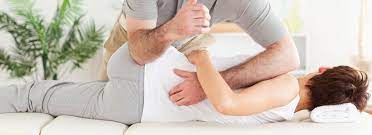

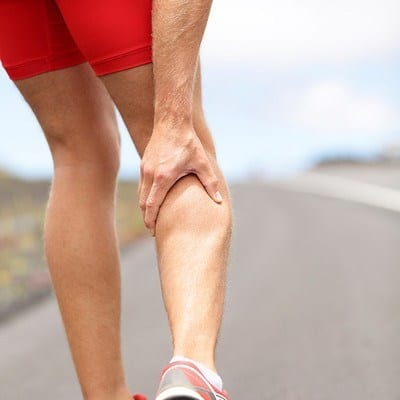
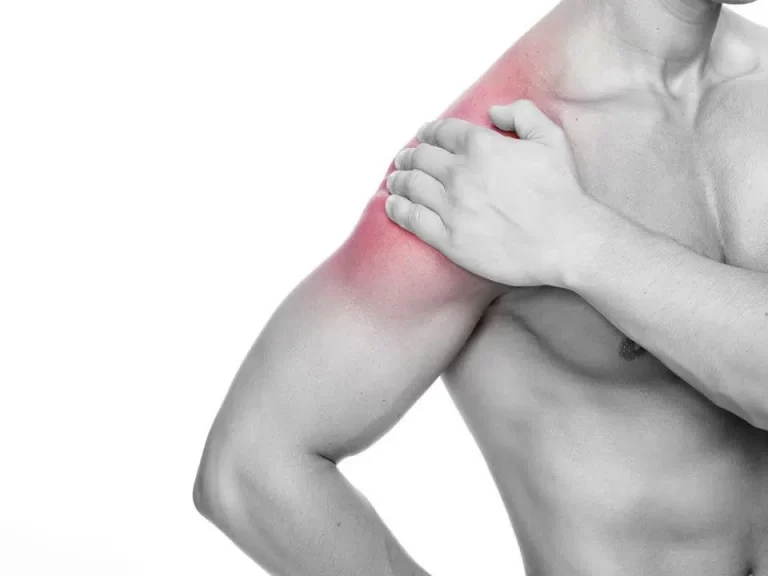
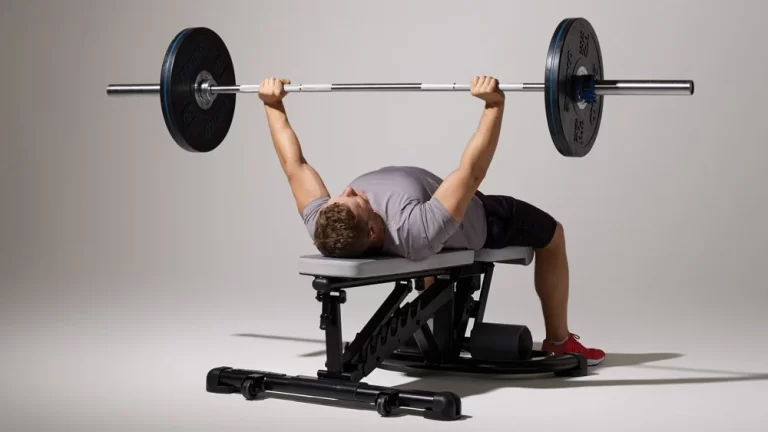
One Comment